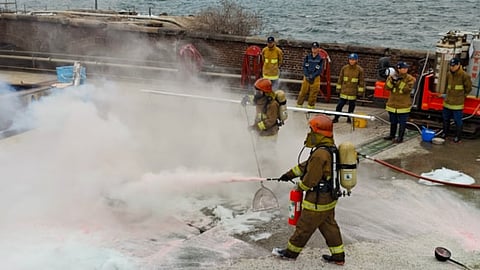IMO Gears Up Seafarers for Future Fuels and Emerging Maritime Technologies
The International Maritime Organization (IMO) is accelerating efforts to prepare the world’s seafarers for the energy transition, as shipping shifts towards zero and near-zero emission fuels.
Central to this push is the development of training standards that will ensure crews can safely operate ships powered by alternative fuels and equipped with new technologies.
Building Global Training Standards
In line with its revised greenhouse gas reduction strategy, the IMO has issued Generic Interim Guidelines on Training for Seafarers on Ships Using Alternative Fuels and New Technologies (STCW 7/Circ. 25). These guidelines offer an international framework for developing and approving training for seafarers across diverse ship types.
More specific interim training guidelines are also underway for fuels and systems such as methanol/ethanol, ammonia, hydrogen, LPG, battery-driven vessels, and fuel cells.
These are expected to be discussed at the IMO’s Human Element, Training and Watchkeeping Sub-Committee in February 2026 (HTW 12).
Ultimately, these measures will lay the foundation for binding global requirements under the revised 1978 STCW Convention Code, which is currently being updated to reflect decarbonisation, digitalisation, and other maritime transformations.
Expanding Capacity and Knowledge Sharing
IMO is complementing regulatory efforts with hands-on capacity building. Among its current initiatives:
A Japan-funded three-year programme to train Asian instructors in operating LNG-fuelled vessels.
A partnership with the World Maritime University to produce seafarer training materials, aligned with the Maritime Just Transition Task Force framework.
GreenVoyage2050 support for trainers in developing countries to design localized curricula and online modules.
Platforms for innovation sharing, including a recent seminar in Singapore that demonstrated VR-based simulators and methanol firefighting drills.
A Just and Prepared Transition
By strengthening training frameworks, enhancing Member State capacity, and linking regulators with industry innovators, the IMO is seeking to ensure that the energy transition in shipping is not only technologically feasible but also equitable and safe for seafarers.
As alternative fuels move from pilot projects to mainstream adoption, the readiness of crews will determine not just the pace of decarbonisation, but also the safety and resilience of global maritime trade.


